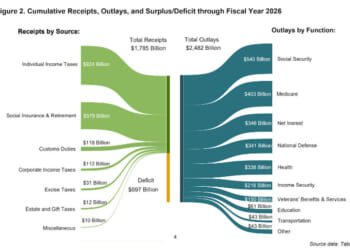After I woke up from a long sleep last Saturday morning, fresh back from my trip to Saudi Arabia, I went downstairs to make myself a fresh cup of coffee. It was a fine morning, as some leaves had already fallen in a sign that Autumn was just around the corner. Although the sun shone brightly, the temperature was pleasantly cool. From my seat in the kitchen, I looked up at the arched brick ceiling and let out a sigh of relief that I was home. My next thought surprised me immensely: “Thank God for DEI!”
It was at that moment I realized how different my life would’ve been had it not been for the ridiculous DEI policies banks had instituted about 10 years ago. I might still be in Hong Kong, dialing for dollars, placing trades for clients, and drinking too much with them over a dim sum in Lan Kwai Fong, one of Hong Kong’s most entertaining districts.
I had left my old bank for the same reason many do: the utter impossibility of getting promoted. Let me be clear here. If you’re in a revenue-generating position, the banks are truly colorblind. They won’t care if you’re Black, Brown, or even White (GASP!). You’ll get promoted if you bring in the bacon (and the bank doesn’t think it can replicate the revenue without you, of course).
But if you’re in operations, finance, technology, or, heaven forbid, talent development – all cost centers – the probability of getting promoted if you don’t fit the DEI KPIs (Key Performance Indicators) is slim to none. This poses a particular problem for White people, especially White men.
If you’re in the U.S. or Europe, DEI means “We need to hire more Blacks, Browns, and women.” If you’re in Asia, like I was, it means “We need to hire more locals, so we stop looking like colonial overlords.”
So there is nowhere to go when you’re a white male. You need to enter the bank at the position you want and negotiate hard for it, because you’re almost certainly not getting that promotion.
Unfortunately, I only figured that out a year into the job, so I sat at my desk and surfed the net until I could get Pam, Micah, and me out of there. During my last week on the job, I finally scored a transfer to my old futures desk, but I had already resigned and agreed to return to teaching by the time I found out.
Nevertheless, I’m so grateful all that happened. I probably wouldn’t be sitting here in Italy writing to tell you about it.
You may be thinking, “That’s fine for you, Seanie. You landed on your feet. What about all the other people who’ve been screwed out of promotions and larger paychecks because of DEI?”
Let me take you to the first reason why it’s a net benefit for them.
1. Exit The Cubicle Farm
Man was not born to spend his life in a cubicle farm. And nothing softens a man up and makes him want to stay in that cubicle farm more than a monthly paycheck.
As I mentioned earlier, I’d probably still be in a bank if I had received my promotion. However, by not receiving what I thought I deserved, I set out to prove I was more than what my boss thought of me. This kind of affront is the seed of many start-ups.
The truth is, many incredibly talented people are stuck doing boring things at their big corporations because they’ve got a wife and children, a mortgage, car payments, and credit card bills. And I understand why they stay.
But sometimes, a kick out the door is precisely what they need to become the entrepreneur they were born to be.
2. The Ivy League and Oxbridge Decimated Themselves
Are you ever going to be intimidated by someone who tells you they’ve got a Harvard degree? I hope not. Because the odds are, they don’t deserve that kind of respect from you.
Does that mean all Ivy Leaguers and Oxbridge grads are stupid? Of course not! (My friends and colleagues Byron King [Harvard] and Enrique Abeyta [Penn] put paid to that nonsense right here at Paradigm Press.)
Does that mean all non-White Ivy Leaguers and Oxbridge grads are substandard? Again, of course not! I teach many bright graduates of all backgrounds every summer.
Does that mean all White and Asian Ivy Leaguers and Oxbridge grads are brilliant? Nope. No offense, but you can always pick out a legacy kid. (But the odds are the Asian ones are actually brilliant, since the universities discriminate so nakedly against Asians.)
Take, for instance, the numbnut who’s the incoming head of the Oxford Union. We know he wasn’t qualified for Oxford’s unjustifiably vaunted Politics, Philosophy, and Economics (PPE) program because he published his high school grades on LinkedIn. He scored one A and two B grades on his A-Levels, short for Advanced Level Qualifications. (Unlike the SAT in the U.S., A-levels are tests taken in subjects of the student’s choice, studied over two years. Those grades, and not the SAT, are the main qualifications UK universities use for admission.) The entry requirement for the Oxford PPE program, as published by the university, is three A grades. He was clearly a DEI entrant.
To absolutely no one’s surprise, Joy Reid admitted she was a DEI entrant at Harvard. And then Joy proceeded to major in Film Studies (which I can’t believe I capitalized).
On the other hand, we have Jeff Skilling, a Harvard MBA, who was CEO of Enron. I don’t care if the man got a perfect score on his GMAT; he’s a moron. Skilling spent 12 years in federal prison (out of the 24 years he was initially sentenced to) and paid a $45 million fine, then disappeared from public view after the most notorious case of corporate fraud in history. He’s a white guy, but certainly not “pure as the driven snow” as he was wont to say about Enron’s finances.
My point is a degree from these schools doesn’t mean as much as it used to, considering the substandard applicants they admit nowadays. We’d never know that without DEI grads freely advertising that fact.
This leads us to an inescapable conclusion: Knowledge is useless without proper application.
3. Skills Matter Much More Than Knowledge
There’s a reason Google dropped college diplomas as a job requirement. They realized that while there are Management Information Systems grads and Technology grads, they don’t code very well. And some of them get in the office, and suddenly DEI becomes more important than production. So Google, and many other firms in Silicon Valley, have one significant entry requirement: show them the code you wrote. If it’s good enough, and you’re not a complete dork in the interview, you’ll get the job.
Similarly, Mike Rowe was onto something when he encouraged young men and women to pursue the trades, rather than incurring six-figure debt to study something they don’t want to, only to spend their lives doing something unrelated to their major.
These kids earn immediately ($65,000 to $100,000 out of the gate, depending on the specialization) while incurring the much, much lower costs of trade schools (between $4,000 and $17,000 all in).
In contrast, students attending college out of state will pay $123,000 over four years and graduate with an average debt of at least $40,000. If you’re assured of going into a high-paying profession immediately, this may still be worth it. But usually, it isn’t.
If we can revive apprenticeships for accountants, bankers, and lawyers, we can arrest the daylight robbery of business and law schools.
Wrap Up
Thank heavens for DEI. It got me up off my duff to do something useful. Additionally, I have much more time to spend with my family.
DEI graduates are in jobs they can’t do, because they received degrees they didn’t earn, after getting into schools they should’ve been able to attend. Soon, we’ll see the bitter fruits of that misallocated labor in the form of age-old firms losing the momentum better people built, and declaring bankruptcy on a mass scale.
I’ll be in my kitchen drinking coffee as it happens. Thank God for that!
















